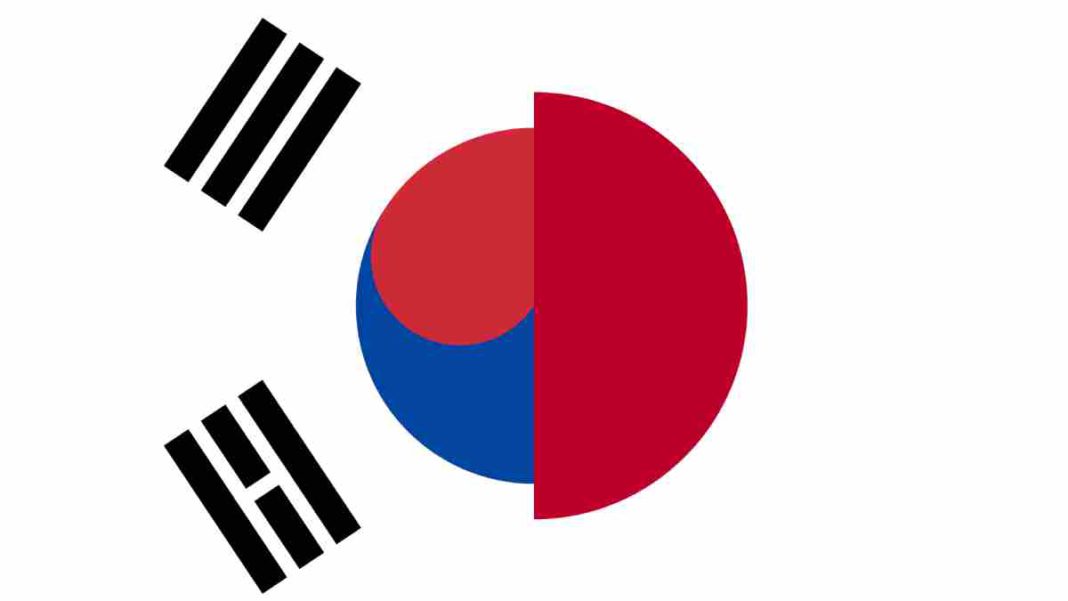JAPAN/ SOUTH KOREA: Japan and South Korea’s finance ministers will hold a bilateral meeting early the following month for the first time in seven years, signalling more cooperation in economic policy that has been impeded by diplomatic conflict.
A media pool report says that South Korean Finance Minister Choo Kyung-ho reportedly informed reporters during a trip to the US that he has agreed to meet Japanese Finance Minister Shunichi Suzuki.
They will meet on the fringes of the Asian Development Bank (ADB) annual meetings, which will take place in Incheon, South Korea, from May 2–5, although further details are still to be determined, said Choo.
Choo added, “It is significant in that it will be the first step towards reviving regular bilateral meetings,” without providing any other information.
Since 2016, regular annual meetings between the finance ministers of the two countries have been suspended due to conflicts over wartime history.
However, at a summit between Yoon Suk Yeol of South Korea and Fumio Kishida of Japan last month, the two neighbours vowed to set aside their tumultuous shared history and cooperate to address regional security issues.
Financial markets will likely be closely watching to see if the finance ministers will bring up the possibility of renewing a bilateral currency exchange agreement that had previously functioned as a safety net in case of a currency crisis but had expired in February 2015.
What is the reason behind the efforts to promote South Korea-Japan reconciliation?
To confront shared concerns, both nations have long recognised the necessity of resolving old historical disputes from the Japanese colonial era and strengthening their diplomatic and economic connections.
However, previous pacts aimed at settling their disputes—like the 1965 normalisation treaty and claims agreement and the 2015 comfort women accord—were either ambiguous or gave victims’ concerns little consideration in favour of political expediency and national objectives. These accords enabled the two nations’ relations to flourish in terms of security, progress, and prosperity.
But since they left open-ended issues regarding the colonial era, the agreements continued to be contentious and were at constant risk of disintegrating.
For instance, the South Korean Supreme Court in 2018 overturned Japan’s view of the colonial era and the 1965 Claims Agreement by holding that Japanese corporations must directly compensate Korean victims of forced labour. The choice immediately jeopardised security cooperation between the two countries and harmed bilateral relations and commercial ties.
The most recent agreement between the administrations of Yoon and Kishida might be proceeding in the same regrettable manner. Both nations have a strong motive to cooperate given that they have recently faced similar difficulties, such as North Korean aggression, Chinese coercion, slow economic growth, inflationary pressure, supply chain resilience, and climate change.
By compensating South Korean victims of forced labour through a foundation funded by South Korean enterprises rather than Japanese ones, the recent bilateral agreement seeks to repair fences and restart collaboration.
To maintain its position that all claims had been resolved by the 1965 treaty and, as a result, Japanese corporations are not required to make compensation, this is designed to reduce tensions resulting from the 2018 South Korean Supreme Court decisions.
The agreement seems to be functioning, at least on a governmental level. It made it possible for President Yoon to travel to Tokyo last week for the first bilateral summit between the leaders of the two nations in twelve years, where they decided to resume diplomatic exchanges and security discussions, normalise an agreement on intelligence sharing, and take action to settle ongoing trade disputes.
Japan recently removed restrictions on the sale of three chemicals to South Korea that are essential for its high-tech sectors. Additionally, corporate associations in both nations declared that they would make financial contributions to assist youth scholarships and cultural interactions.
Also Read: Japan: PM Fumio Kishida Resumes Campaigning after “Smoke Bomb” Scare



